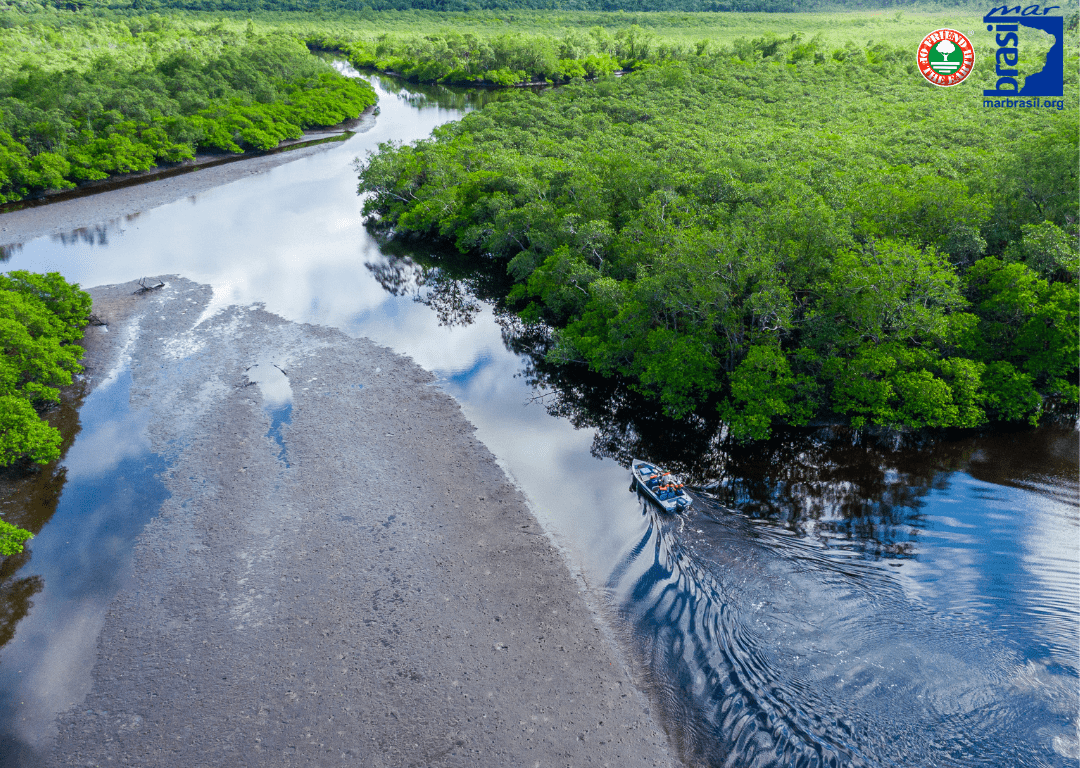Friend of the Earth started a partnership with the MarBrasil Association aiming to provide an assessment of the biodiversity status of mangroves and reveal their potential for carbon stock, an understudied topic where the research gaps persist. Owing to the Friend of the Earth funding, the results of this study can serve as a basis to shed light on numerous interconnected issues of the mangrove’s ecosystem protection in the future: salty and terrestrial biodiversity, representation of all existing species, relation to local communities, role in extreme weather conditions mitigation, trafficking, and many more.
Mangroves, the planet’s best carbon stores, are also collectively termed “Blue Forests” and are deemed to be among the most valuable and productive coastal ecosystems on the planet, being the home to many endangered species. Although we are certain there are 70 different species of them, little is known about their current state and the nexus to marine megafauna.
As humanity struggles to find ways to combat climate change and reverse planet degradation, it is of fundamental importance to estimate the mangrove’s capacity to store carbon. Carbon fixed by mangroves (also referred to as blue carbon) would help sequester anthropogenic CO2 emissions and subsequently slow rapid climate change. Understanding the need for reliable information, Friend of the Earth decided to fund a Blue Carbon study to be carried out by The MarBrasil Association and help their reforestation activity in some of the degraded areas.
“We recognized the potential in obtaining the relevant data on mangroves potential to diminish the amount of carbon in the atmosphere and decided to partner with MarBrasil Association in making it happen”, said Paolo Bray, founder, and director of Friend of the Earth. “Hopefully this study will unlock research potential for future studies, help mangrove conservation, detect areas with potential for reforestation, contribute to sustainable management and shed light on the importance of mangroves in our ecosystem.”
The project collaboration on these extraordinary tropical species will result in multiple benefits: social, environmental, and academic, owing to its cross-sectoral objectives and comprehensive indicators. The scientific evidence will confirm the significance of mangroves for our planet and specifically local communities that depend on them and will provide compelling arguments to mobilize funds for further projects.
Aside from their role in climate regulation through pulling carbon out of the atmosphere, mangroves can also play key roles in several important ecosystem services: they provide food and raw material in food security chains, create a positive impact on human well-being in the context of recreation and tourism, as well as help in moderation of extreme weather conditions.
Friend of the Earth is one of the two main program frameworks of the World Sustainability Organization, a Milan-based international non-governmental organization, whose goal is to mainstream sustainability to protect the planet and endangered species by encouraging businesses to adopt environmentally responsible practices.
Associação MarBrasil was founded in 2004, to seek alternatives and solutions for the conservation and rational use of the marine-coastal ecosystem. Headquartered in Pontal do Paraná, on the southern coast of the country, MarBrasil is committed to searching for solutions to harmonize the development of the coast of Paraná and Brazil.
For more info: Save the Mangroves




